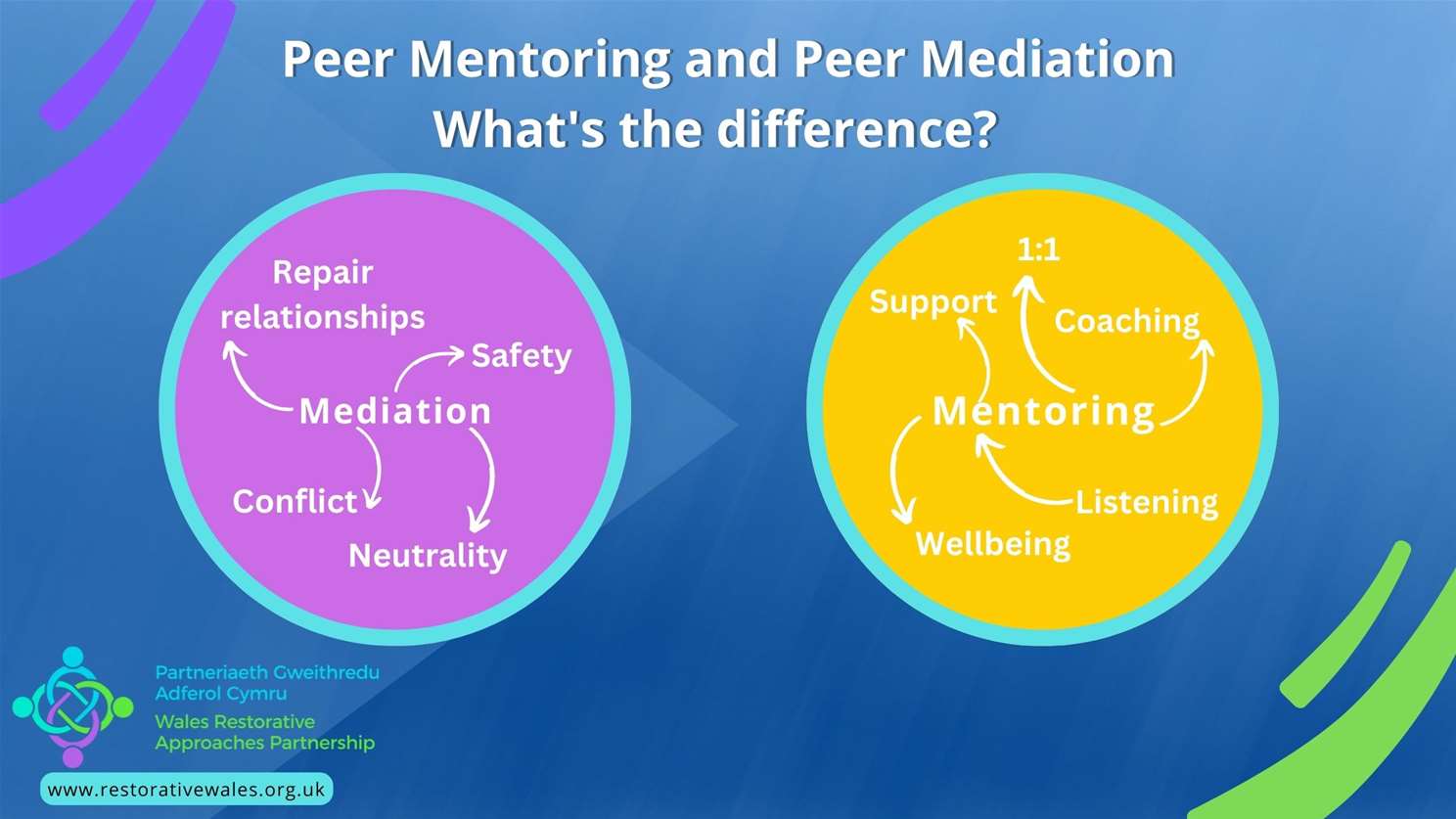Peer Mediation
Peer mediation is a process whereby children and young people take responsibility to build, maintain and repair relationships within their peer network. This can happen in education, youth groups, secure units and community.
Peer mediators receive in depth training that enables them to bring peers together into a restorative meeting when a relationship may have broken down. This includes 1:1 meetings to explore individual needs before bringing people together when appropriate. Peer meditators support low level disputes in their peer network. For example, friends who have fallen out, issues due to rumours, children who are excluding others and general conflict.
Peer mediators have boundaries of the issues they can support with, in order to protect their own wellbeing. For example, a peer mediator does not support: bullying, physical harm, any concerns that arise outside of school or safeguarding concerns. If any information of this nature is disclosed to a peer mediator, they must pass this on to a member of staff straight away. Peer mediators can however support low level disputes between their peers. This promotes children and young people to take accountability for their thoughts, feelings, behaviours and learn tools and techniques to be able to resolve conflict for themselves. This means that positive relationships are built, maintained and repaired, leading to less conflict long-term. Peer mediation supports children and young people to build resilience, enhance strengths and develop pro-social relationships in their peer network.
Benefits of peer mediation:
- Builds resilience
- Promotes autonomy
- Promotes accountability of thoughts, feelings and behaviours
- Encourages problem solving
- Repairs harm
- Enhances communication skills
- Incidents of conflict reduce over time
Peer Mentoring
Peer mentoring is a relationship between a Peer Mentor and a Peer Mentee. A peer mentoring relationship occurs whereby a mentor uses their skills and knowledge to support a mentee with a particular concern. A peer mentor provides a purposeful, structured and safe relationship with a peer mentee where they can provide coaching and support in a social and emotional capacity. Peer Mentors may use lived experience to support a mentee. For example, a Peer Mentor who has experienced parental separation may be suited to support a mentee who is currently experiencing parental separation. Peer mentors may also support other needs that they will be trained to deal with.
Peer mentors receive in depth training to provide support for wellbeing. This could be in relation to friendships, social skills, school work, loneliness, transition phases in education and more. Peer mentors check in with peer mentees regularly to discuss their needs, plan how to support them and monitor this appropriately. There is usually a timeframe for a mentoring relationship which may be dependent on the needs of the mentee. The mentoring relationship will come to an end when the peer mentee feels that their needs have been met. The peer mentoring relationship promotes positive relationships, self-confidence, self-esteem and provides a safe space for children and young people to work through a particular concern.
Safeguarding is a key part of peer mentoring. Peer mentors are trained in the boundaries of confidentiality and what issues they must pass on to a member of staff. Peer mentoring supports children and young people to build pro-social relationships, develop confidence, build resilience and feel less isolated.
Benefits of peer mentoring:
- Improved wellbeing
- Children and young people feel less isolated
- Positive relationships are developed
- There is a clear point of contact to reach out to
- Enhances communications skills
- Builds resilience
- Social skills improve over time
Summary
Peer mentoring and peer mediation both promote positive relationships, interpersonal skills and overall wellbeing. Both roles receive in depth and supportive training to ensure the role can be carried out safely. Peer mediation focuses on resolving conflict whereas peer mentoring focuses on promoting wellbeing.
What next?
Hopefully this blog provides you with an overview of the difference between peer mediation and peer mentoring. If you feel that peer mediation or mentoring could benefit your organisation, please get in touch. Just want to find out more or have any questions? Please email us at contactus@restorativewales.org.uk




